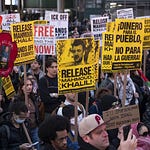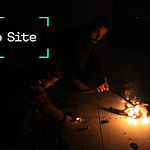An agreement on a deal that will halt — at least temporarily — Israel’s 15-month long genocidal assault on Gaza was announced on Wednesday to scenes of celebration by Palestinians in Gaza. The agreement is divided into three phases, each spanning 42 days, and outlines specifics on the first phase, including prisoner swaps, Israeli troop withdrawals, allowances for displaced Palestinians to return to their homes, while leaving the details of the ensuing two phases to be determined through future negotiations.
The deal, announced by Qatari prime minister Sheikh Mohammed bin Abdulrahman bin Jassim Al Thani in Doha this afternoon, will take effect on January 19. A monitoring mechanism based in Cairo and operated jointly by Egypt, Qatar and the United States will watch for and mediate any violations, a joint statement said.
At the time of writing, Israel has not yet officially announced it has agreed to the deal. The terms of the agreement being negotiated are nearly identical to what was on the table last May when outgoing President Joe Biden first announced it. Much of the last minute negotiations this month were around specific details, including sensitive topics such as the extent of withdrawal of Israeli forces, a buffer zone, control of the Rafah border crossing, and whether displaced Palestinians would be able to return to their homes in northern Gaza.
Sami Al-Arian, director the Center for Islam and Global Affairs, Zaim University, and Muhammad Shehada, journalist and analyst from Gaza, joined Jeremy Scahill to discuss the breakthrough in the deal and the potential loopholes for Israel. While Trump’s interventions have been “monumental” in making the ceasefire deal possible, Shehada said, there is a likely “gift bag” in the deal for Israelis.












Share this post